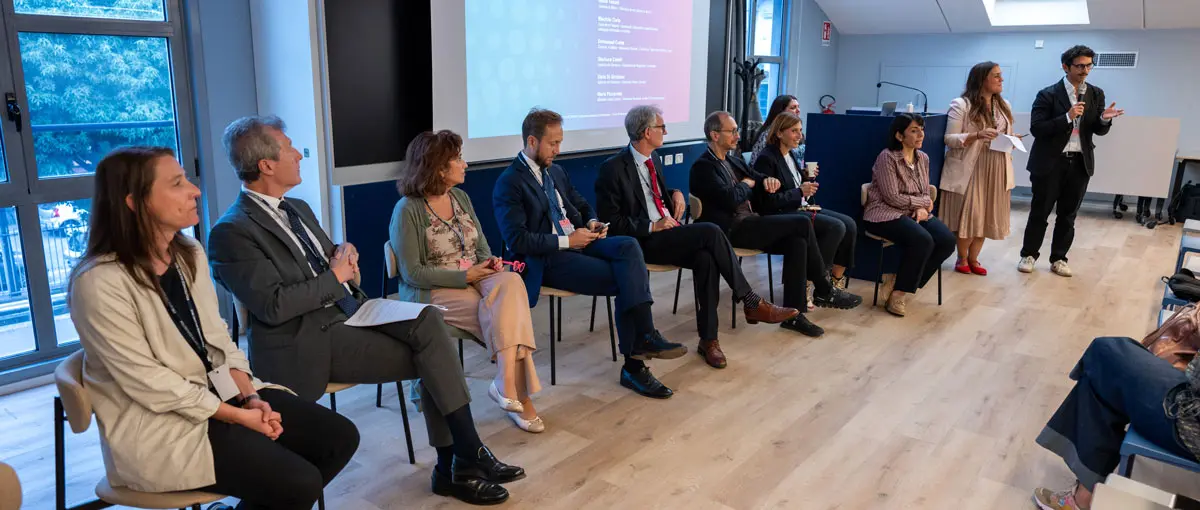OSMOSI: observing and studying hybrid spaces as places of urban experimentation and social inclusion

OSMOSI, a research project funded by the Italian Ministry of University and Research (MUR) under the PRIN 2022 programme, explored the role of hybrid spaces as social, cultural and technological infrastructures. The project produced tools and guidelines to strengthen these spaces, making them more resilient and capable of creating shared value for communities.
Hybrid socio-cultural spaces are becoming increasingly central to community life. They are places that bring together culture, coworking, education and social interaction, evolving into infrastructures that generate social, economic and territorial value.
This awareness prompted the launch of OSMOSI — Observation and Study of the MOdels for the design and development of Hybrid Spaces — a research project funded by Italy’s Ministry of University and Research (MUR) under the PRIN 2022 programme. The initiative carried out an in-depth examination of the role of hybrid spaces and developed both theoretical and practical tools to support their consolidation as social infrastructures serving local communities.
Through an interdisciplinary approach, OSMOSI examined how these places can contribute to participatory urban regeneration, the sustainable transformation of territories and digital innovation, including experimental work related to the metaverse. The project developed tools and models to support public institutions, cultural organisations and local actors in creating and managing spaces capable of generating long-lasting social impact and shared value.
Within OSMOSI, the Department of Management, Economics and Industrial Engineering of the Politecnico di Milano made a specific contribution by designing sustainable business models and assessing the social and economic impact of such initiatives. This work helped define guidelines and methodologies to make hybrid spaces more solid, scalable and resilient, enhancing their ability to endure over time and respond to the needs of communities.
The research journey concluded on 23 September with a final event organised by the Polimi DESIS Lab (Department of Design). The day included keynote speeches, working groups and open dialogues involving academics and local stakeholders. It was an opportunity to highlight the potential of hybrid spaces as real laboratories of experimentation, able to combine social, cultural and technological dimensions to drive the sustainable transformation of cities.
Alongside the Department of Design and the Department of Management, Economics and Industrial Engineering of the Politecnico di Milano, the project also involved the Department of Architecture of the University of Palermo, the Department of Architecture, Built Environment and Construction Engineering of the Politecnico di Milano, and the Department of Psychological, Pedagogical, Exercise and Training Sciences of the University of Palermo.
Thanks to this collaboration, OSMOSI produced a framework for reflection and practical tools to foster the development of innovative spaces, capable of strengthening communities and promoting new forms of urban sustainability.
Further information can be found at: https://www.osmosi.polimi.it/